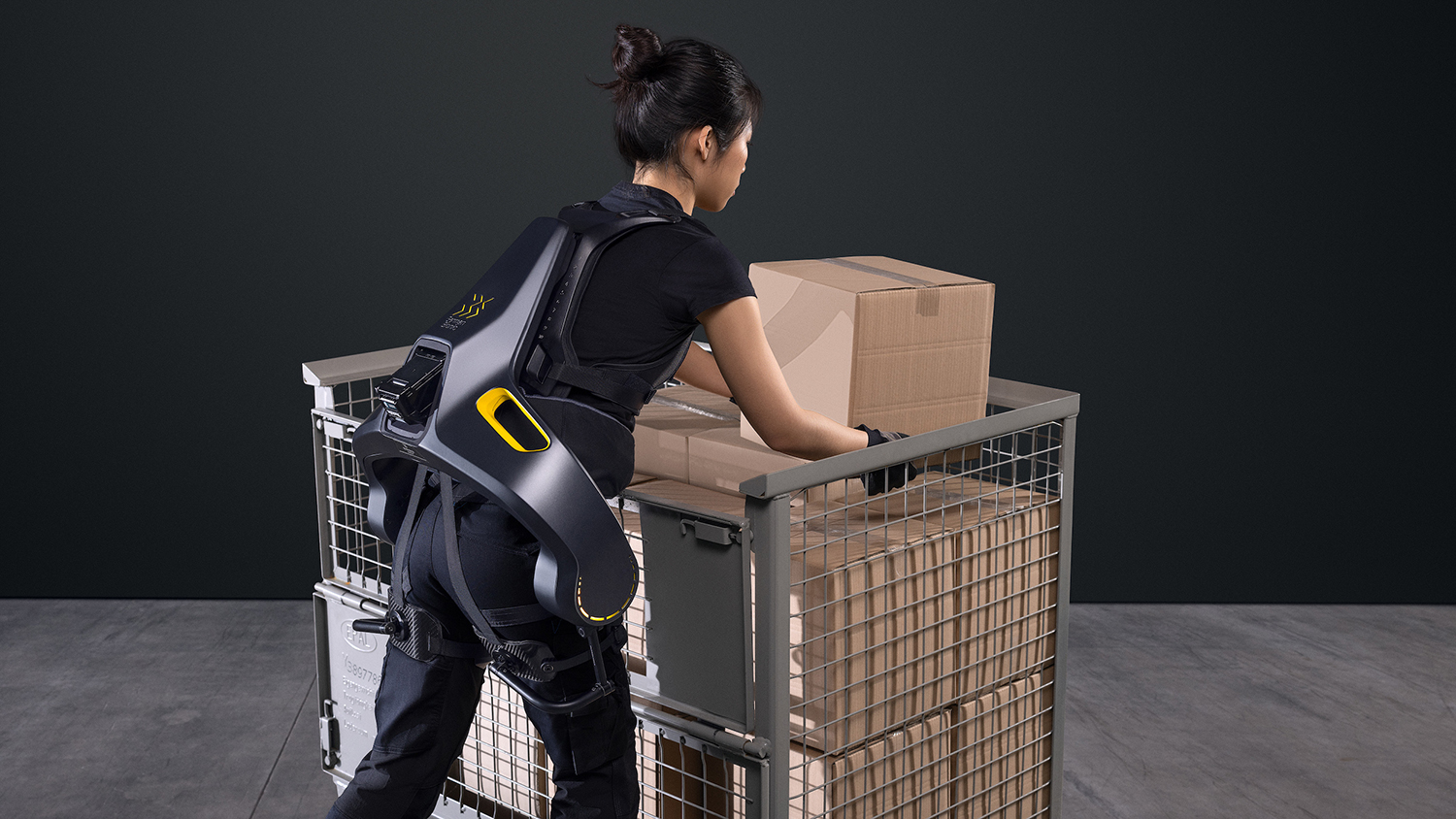
German Bionic, which produces artificial intelligence (AI) directed robotic exoskeletons and other smart safety devices, has launched three more products, including a lightweight exoskeleton called the Apogee.
The Apogee is lighter and more manoeuvrable, making it applicable to a wider proportion of the workforce, and more workplaces, where heavy lifting is required.
The device can be used by more people in settings where it has been traditionally used such as in construction, warehousing and logistics. But it could also break through to other work environments, such as in care settings, to help lift older people or those with disabilities.
Apogee supplies up to 66lbs (30kg) of support for the lower back per lifting movement, and helps minimise fatigue due to active walking assistance.
Ergonomic insights
The firm has also added a new Smart SafetyVest. This offers individually tailored ergonomic insights and assessment, to help reduce fatigue and injury for workers.
Meanwhile, the new data platform German Bionic IO processes data collected from the Apogee, Cray X (exoskeleton) and Smart SafetyVest. Using machine learning and AI it analyses the wearer’s movements to improve individual and workplace ergonomics and safety practices.
Norma Steller, chief product officer of German Bionic, said: “With our new wearables, we are empowering hard-working people with the tools they need to do their jobs more safely and sustainably.”
She added the wearables the company offers, “enable us to provide the right support for just about any company or work environment where manual work is performed”.
“And with the German Bionic IO data platform, we also deliver a powerful analytics tool for workplace ergonomics and processes.”
The post Lighter more responsive exoskeleton widens applications appeared first on Construction Management.











